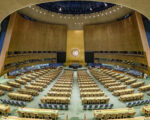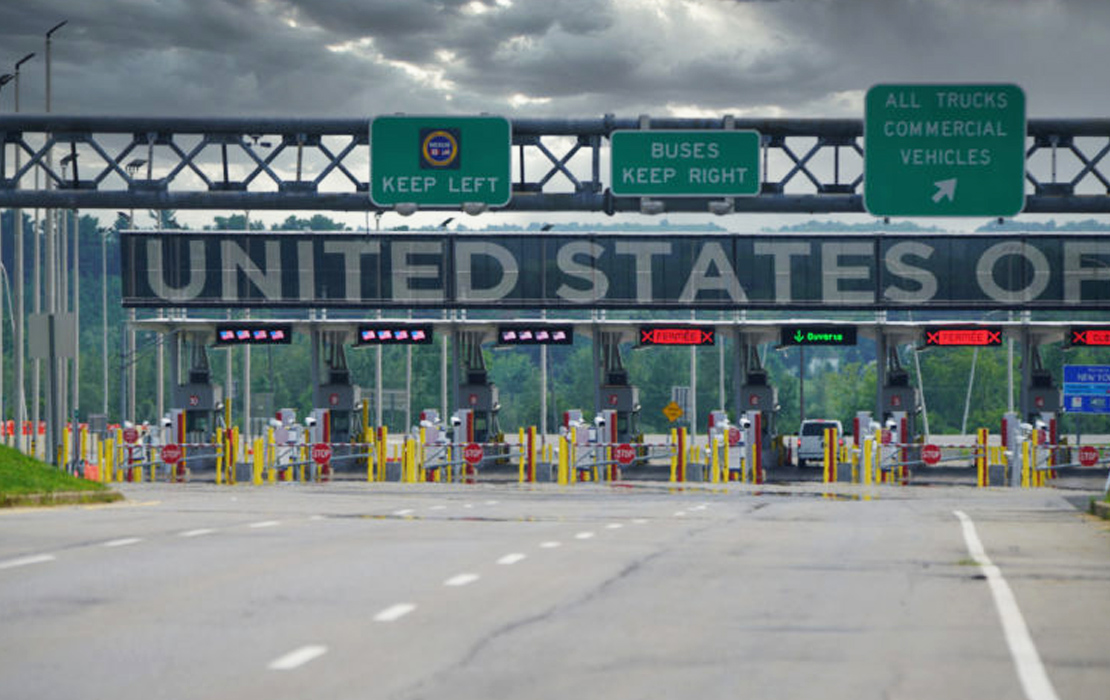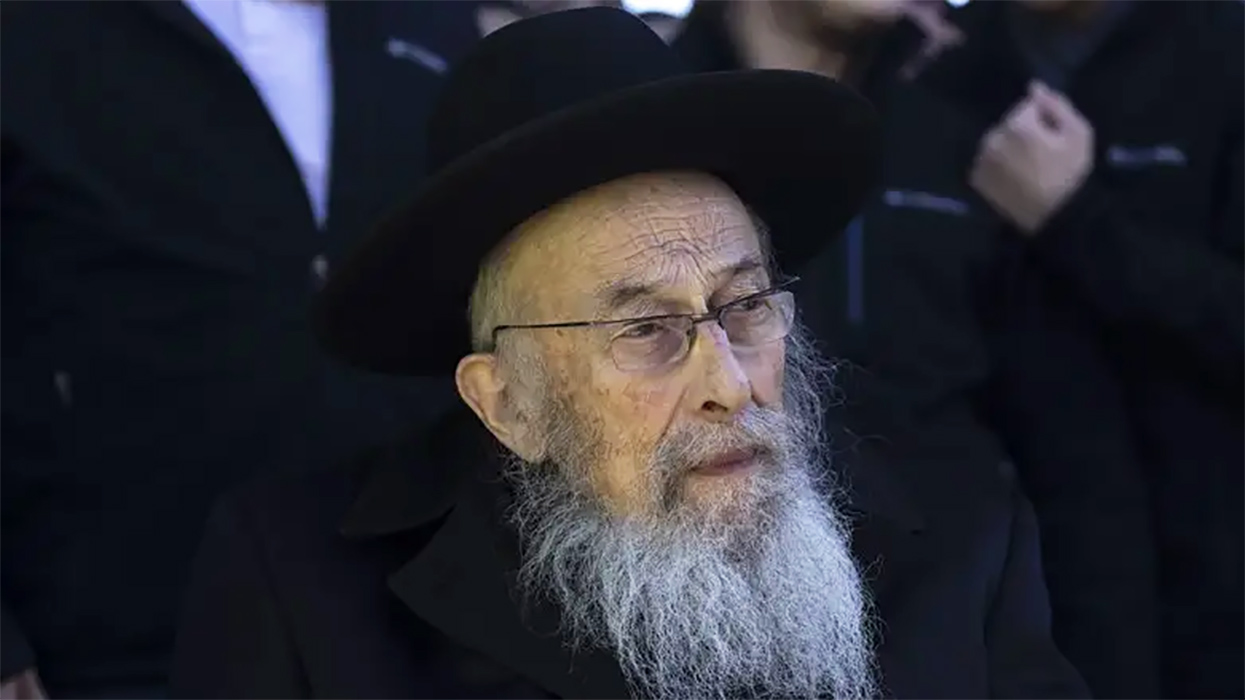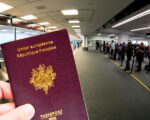>> Canada appoints its first transgender judge
[spacer]
Kael McKenzie, avocat puis procureur de la Couronne à Winnipeg, a été promu le 17 décembre dernier à la Cour provinciale du Manitoba par une commission judiciaire indépendante. Il devient ainsi le premier juge ouvertement transgenre au Canada et le troisième en Amérique du Nord.
Fervent militant pour la défense des droits humains, sa nomination parmi six autres candidats en lice est un triomphe personnel pour le magistrat, qui pensait pourtant sa carrière ruinée après son coming out, mais également un symbole pour toute la communauté LGBT+, notamment auprès des plus jeunes, « qui manque encore cruellement de modèles. »
« Je pense que cela veut dire que nous avons atteint, puis brisé le plafond de verre », a-t-il confié sur la chaîne publique CBC News. « Notre société a parcouru un long chemin mais nous devons continuer à oeuvrer pour la pleine égalité », a t-il ajouté.
Soutenu par sa femme et ses deux enfants, issus d’un précédent mariage, le juge espère aller de l’avant pour le meilleur de sa province.
[spacer]
>> Kael McKenzie, a Crown attorney from Winnipeg, was officially designated a judge on Dec. 17 and will begin his new job immediately.
With his appointment to provincial court, Mr. McKenzie becomes the third openly trans judge now practising in North America. The first, Victoria Kolakowski, of Alameda County, Calif., was appointed in 2010.
Many are calling Mr. McKenzie’s appointment “a Canadian milestone.”
Before his promotion, Mr. McKenzie was a Crown prosecutor for five years in family, commercial and civil law. He graduated from the University of Manitoba in 2006 and has been an active member of both the legal and LGBTQ communities since, co-chairing the Canadian Bar Association’s sexual-orientation and gender-identity conference from 2012 to 2014.
Mr. McKenzie is also serving as vice-president of the Manitoba Bar Association executive committee, the Manitoba chair of the Canadian Bar Association, and president of the Rainbow Resource Centre – which serves Manitoba’s gay, lesbian, bisexual, and two-spirit communities. He also served on the Manitoba Women’s Advisory Council.
Mr. McKenzie was chosen from six candidates by an independent judicial committee that included three community representatives, members of the Law Society of Manitoba and the Manitoba branch of the Canadian Bar Association.
Provincial Attorney-General Gord Mackintosh, who announced the appointment, said the Manitoba government has made an active effort to enhance the diversity of the court since 2001.
“It is so important to not only help ensure the respect of the court and its acceptance by the people, but it enriches the bench in terms of insights,” he said of the initiative. “It makes for a stronger judiciary, there’s no doubt.”
What made Mr. McKenzie’s appointment particularly attractive was his background in criminal and civil law, his indigenous ancestry, and a rich background in serving the community, said Mr. Mackintosh.
“It’s exciting that he’s also trans. I think that was an added strength,” he said.
While he says he’s been transgender all his life, Mr. McKenzie formally transitioned in adulthood. “I was able to deal with it a lot easier when I was in the military or when I worked as a security officer and doing non-traditional female roles,” he said.
“When I moved into law, things got a little bit difficult because there are certain dress and behaviour expectations as you progress in your career. More conformity, if you will.”
He made the decision to come out while in private practice with Chapman Goddard Kagan. “I thought my career was over,” Mr. McKenzie said. “I thought this was too big of a deal and people were going to be uncomfortable, not refer me clients, or clients would leave me, … but not one of the fears turned out to be true.”
With support from his practice, clients and family, Mr. McKenzie describes his coming out as “a tremendous experience.” He transitioned over 2011 and 2012.
George E. Chapman, a partner with Chapman Goddard Kagan, worked with Mr. McKenzie and said his appointment to the provincial court is “a significant event.”
“There is no question that this signals that attitudes in Canada have changed since I was called to the bar in 1954. We have seen a lot of changes in that time,” Mr. Chapman said over the phone from Winnipeg.
“But I’d also like to think this is an appointment on merit.… Certainly there should be equality, but the bottom line is that we have to have quality people and he is a quality person.”
Mr. McKenzie said the support he’s had has made him a better practitioner, too.
“I have more confidence and more focus on being able to be a better lawyer because of the transition,” he said. His wife and two teenage children from a previous marriage also stand by his side, and “the legal community just embraced me.”
Mr. McKenzie recalled that one lawyer he knew even admitted she was a homophobe before watching him transition. “The experience of meeting me and getting to know me really opened her eyes to equality issues, to being more open-minded, and to realizing people are people.”
Mr. McKenzie said he has wanted to be a judge for his entire career but “really didn’t know how that would transpire” as he was coming out.
Today, “I’m just hoping to go forward and do a good job for Manitoba.”
As far as the historical piece goes, Mr. McKenzie said he’s feeling proud for the LGBTQ community.
“It’s important that we have [transgender] role models … and have people reach higher levels in their professions and the community,” he said, adding that he’s open to being “out” as a judge so other people know that it is attainable.
A recent Washington Post investigation found that a total of six transgender people hold office in the United States, including two judges. None are positioned at the national level.
A 2015 estimate also suggested that, worldwide, fewer than 20 openly transgender people hold elected office at any level of government. The report found that, since 1977, only 126 gender-variant candidates from 30 countries worldwide have run in just over 200 electoral races.
“There have been some great strides in better reflecting people of this province, but I would be compelled to say that it is late in coming over the decades,” said Mr. Mackintosh, when asked what this appointment says about how far Canada has come in trans equality.
“[This country] has to continue to get to a place where diversity is being formally recognized, as it is now in Manitoba law.”
While he’s unable to comment on current LGBTQ legislation, Mr. McKenzie said that, “personally, I think society has moved a long way to true equality and hope we continue.
“When we think of judges, we think of someone with a certain background [and] qualifications, a certain look or personality, and I don’t fit a lot of those moulds,” he said. “I’m just so humbled by this experience.”


















